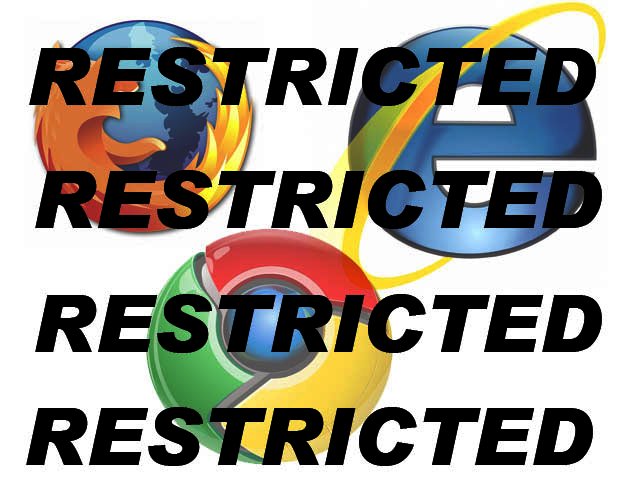PREVIOUS ARTICLENEXT ARTICLE
NEWS

HR 1981 and ACTA provide new threats
By Ryan Noik 30 January 2012 | Categories: news
With the defeat of the Stop Online Piracy Act and Protect IP Act behind us, you would be forgiven for thinking internet freedom is safe from harm.
However, this would be a false sense of security, as two acts that are no less intrusive and potentially even more devastating to personal privacy are spectres of an ongoing threat.
The first of these is Protecting Children From Internet Pornographers Act, which on the surface, sounds like a good idea. The bill, officially called H.R. 1981, instead reads like the prelude to George Orwell’s 1984, that could more accurately be entitled ‘The first step towards totalitarianism in the information age’.
The bill was first suggested in May last year. However, it stalled while SOPA was prioritised ahead of it. As of the 16th of December though, it was again pushed to the forefront, and latest indications are that support for it is growing. At present though, no timeframe has been given as to when, or whether, it could be passed.
Intruder alert
According to the International Business Times, H.R. 1981 is “intrusive in ways that SOPA never deigned to be”, threatening “a different type of assault on personal privacy and online freedom”.
One of its most alarming consequences if passed is that internet service providers (ISPs), at least throughout the US, would be required to keep track of their users.
“The firm that sells you Internet access would be required to track all of your Internet activity and save it for 18 months, along with your name, the address where you live, your bank account numbers, your credit card numbers, and IP addresses you've been assigned,” explained The Atlantic.
Even worse, under the act, a person would in effect be treated as if they were guilty until proven innocent. The Atlantic point outs that the bill “wouldn’t even require that someone be under investigation on child pornography charges in order for police to access their Internet history - being suspected of any crime would be enough.”
Try and try again
According to the International Business Times, the author of the bill is Lamar Smith, the same senator who authored SOPA and PIPA only to see them perish in an outcry by civil rights organisations, technology companies and general users.
While it’s unclear as yet just how far reaching this bill, if passed, would be, one only needs to look at the recent arrests at Megaupload as evidence of the long arm of the law that reaches beyond the borders of the US.
While the bill is not new; the defeat of SOPA, which was pushed to the forefront ahead of H.R. 1981, has apparently spurred new momentum into having it passed.
Getting into the ACTA
The second bill that is taking yet another stab at enforcing copyright and tackling counterfeited goods is the Anti-Counterfeiting Trade Agreement (ACTA).While a number of countries have already signed the act, it is yet to be ratified. However, the most disturbing part of ACTA is the secrecy in which it has been shrouded.
According to the Electronic Frontier Foundation (EFE), the bill “raises significant potential concerns for consumers’ privacy and civil liberties for innovation and the free flow of information on the internet and legitimate commerce,” much like SOPA did.
The foundation elaborates that ACTA is being negotiated by a “select group of industrialized countries outside of existing international multilateral venues for creating new IP norms such as the World Intellectual Property Organization and the World Trade Organization.
“Both civil society and developing countries are intentionally being excluded from these negotiations," it warned. While a number of countries including Australia, Canada, Japan, South Korea, Morocco, New Zealand, Singapore, the US, the EU, Spain, Sweden and the United Kingdom have signed ACTA, it has not yet been made law.
To the point
It is all too easy to view SOPA, PIPA, ACTA and H.R. 1981 as different avenues of trying to implement the same agenda – namely a clamp down on internet freedom, at the cost of users’ privacy and right to due process, under the guise of providing security.
The warning by Benjamin Franklin that those “who can give up essential liberty to obtain a little temporary safety, deserve neither liberty nor safety,” though opined almost 250 years ago, has never seemed more apt.
TAGS:
USER COMMENTS
Most Read Articles
Read

Magazine Online
TechSmart.co.za is South Africa's leading magazine for tech product reviews, tech news, videos, tech specs and gadgets.
Start reading now >
Download latest issue
Have Your Say
What new tech or developments are you most anticipating this year?
New smartphone announcements (45 votes)
Technological breakthroughs (29 votes)
Launch of new consoles, or notebooks (14 votes)
Innovative Artificial Intelligence solutions (29 votes)
Biotechnology or medical advancements (24 votes)
Better business applications (160 votes)



